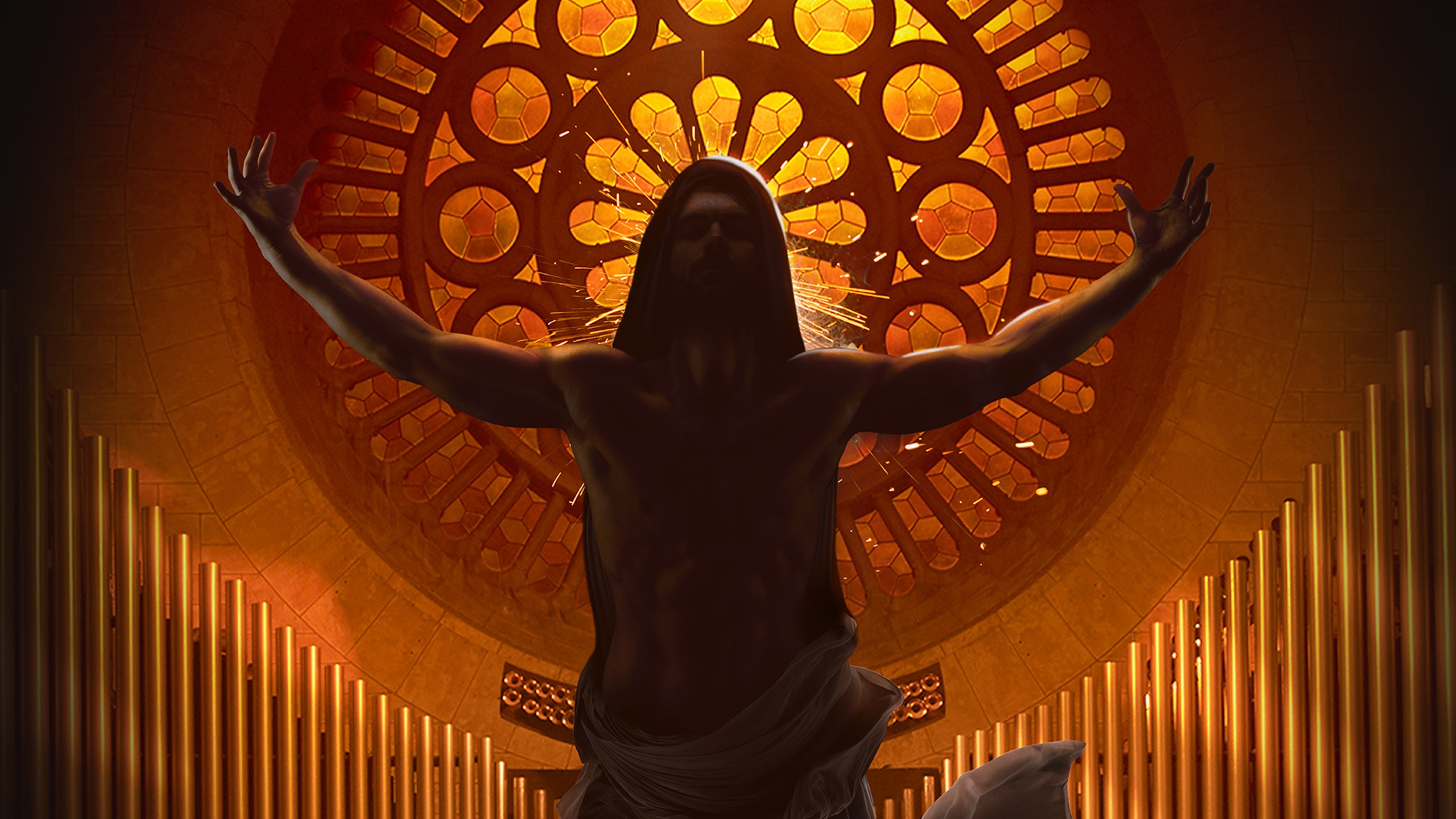ORATORIO Messages and Translation
ORATORIO Messages and Translation
An anthem to new beginnings, featuring J.S. Bach's Easter Oratorio and new music by Lachlan Skipworth.
West Australian Opera presents Oratorio in association with The University of Western Australia Conservatorium of Music.
Easter Oratorio Translations
- Sinfonia
- Come swiftly and hasten - Kommt, eilet und laufet [Chorus, and Tenor, Bass soloists]
Come swiftly and hasten with fleetest of footsteps to visit the garden wherein Jesus lay
Laughter and gladness now banish our sadness for our dear lord is risen today
- Oh, cold hearts of men - O kalter Männer Sinn [All]
Oh Cold hearts of men
Where is the love gone that you owe to the saviour?
Ah, affliction and grief and fearful sorrow of heart
With salty tears and melancholy longing intended an anointing for him
Which you, as we, have done in vain
- Welcome are the precious spices - Seele, deine Spezereien [Soprano aria]
Welcome are the precious spices that anoint the lifeless lord
Faith alone can change his wreath into a crown of glory;
Therefore trembling hope steals over me
- Here is the tomb - Hier ist die Gruft [All]
Here is the tomb
And here is the stone which covered it
But where will my saviour be
He has risen from the dead
We met an angel who proclaimed this to us
I see here with pleasure the veil lies unwound
- Softly shall my eyes be closing - Sanfte soll mein Todeskummer [Tenor aria ]
Softly shall my eyes be closing once reposing in the care of him i love
Yes, he’ll wipe away my sorrow as he hears my soul above; thus refreshed to face the morrow
- How long I pray - Indessen seufzen wir [All]
Meanwhile, we sigh with fervent yearning
Ah if only it might soon happen
To see the saviour himself
- Tell me now in haste - Saget mir geschwinde [Alto aria]
Tell me tell me quickly
Tell, where I may find Jesus
Whom my soul loves!
Come then come,
Embrace me
For my heart is without you quite orphaned and distressed
- Let us rejoice - Wir sind erfreut [All]
And our heart
At first, so dissolved and suspended in sadness.
Forget sorrow
And ponder songs of joy;
For our Saviour lives once more.
- Praise and thanks - Preis und Dank [All]
Praise and let us sing to Christ the king
Death’s domain for us was broken when the hell’s gates he did destroy
Glorious things shall now be spoken here on earth, in hymns of joy
Then fling wide the gates for the king ever glorious; the lord of Judah has risen victorious
Learn more about Oratorio here.
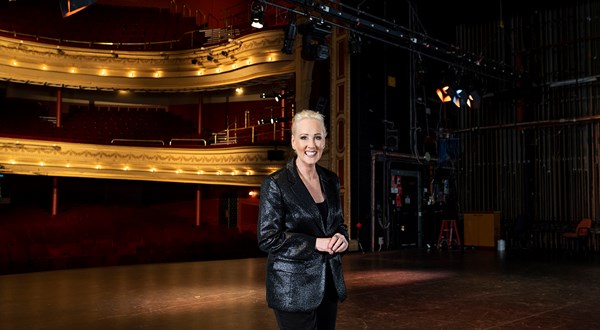
Executive Director's Message
Oratorio is West Australian Opera’s third collaboration with Conservatorium of Music at the University of Western Australia and presents an important opportunity to nurture the next generation of singers and musicians.
We are proud to re-imagine the possibilities of our art form and present new music in works such J.S. Bach’s Easter Oratorio (1725) with new music from WA composer Lachlan Skipworth. We are grateful to work with director Margrete Helgeby Chaney and lighting designer Mark Haslam working with Bella Marslen, Jillian Halleron, Jake Bigwood, Ry Charleston and the UWA Symphonic Chorus and Symphony Orchestra conducted by Chris van Tuinen.
Whether this is your first performance with West Australian Opera or a return visit, we hope it is a memorable experience for you and we thank you for supporting West Australian Opera.
Carolyn Chard AM
Executive Director
West Australian Opera

Artistic Director's Message
Oratorios (as opposed to masses) are operas in disguise, they use orchestras, chorus, and soloists to tell a story and explore the emotions of characters. Some of them are linear stories, some focus on different angles or perspectives, some of them even have sound effects and dancing.
Historically, they were sacred stories and so reserved for churches and then concert halls, far from the sacrilegious theatre world. In poaching them I hope we’re celebrating some of the greatest music and storytelling in the canon, using movement, staging, and lighting to realise the evocation of the spirit that lies inside these pieces.
Alongside that is a desire to see what this means for our time and through our music. We’re delighted to bring the world premiere of Lachlan Skipworth’s music to the stage, a wonderful experience for all the company and a beautiful new world of sound to explore.
Lastly my thanks to all at UWA for their support and enthusiasm, the staff and students of this world class institution are always keen to explore, push the boundaries and have new experiences – all in the name of learning. May that never change.
Chris van Tuinen
Artistic Director / Conductor (ORATORIO)
West Australian Opera
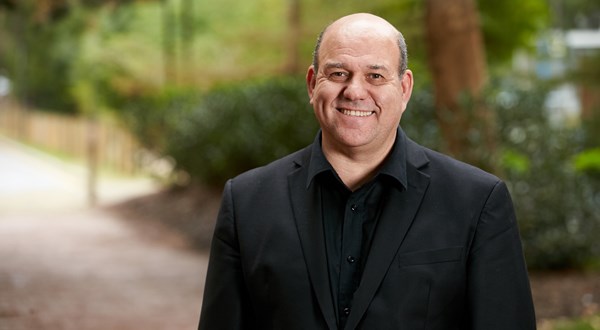
UWA Head of School's Message
We are delighted to be once again partnering with the West Australian Opera – one of the country’s premier arts organisations – to present these stunning works in a theatrical performance. The opportunity for future professional students to work with the current professional musicians has a profound effect on their understanding of the demands of the profession.
The University of Western Australia and Winthrop Hall have been at the centre of WA cultural life for more than 100 years. Bringing to life for the first time a new work by UWA alumni Lachlan Skipworth in this iconic hall is a true joy. To see the creative life of the state reinvigorated by these joint projects by West Australian Opera, working with the new generation of artists, is exciting and rewarding.
Alan Lourens
Head of School
UWA Conservatorium of Music
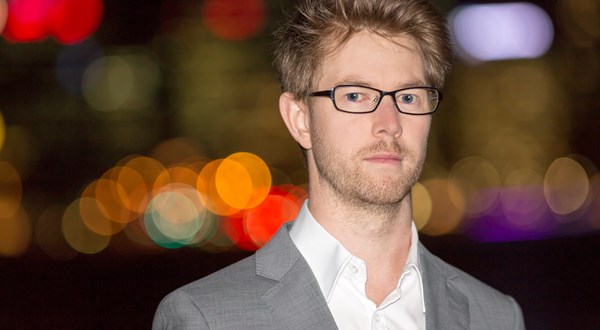
Composer's Message
The prospect of writing music to sit next to Bach’s Easter Oratorio caused me no small amount of apprehension when I was asked to contribute to this project. However it was the sheer impossibility of the task, if only perceived, that enticed me to accept the challenge immediately. Of course I knew I had to write my music, but I needed a compelling reason to justify it being there. Immediately, something felt rather superfluous about the idea of inserting my music before or between the Bach movements. Soon I began to focus on Bach’s recitatives, not only due to their extreme brevity, but also because they seemed to touch on significant themes and plot points that might warrant further investigation. So I decided on a recomposition of each, keeping the same text but creating a new musical setting.
O kalter Männer Sinn! dwells on the text’s themes of grief and sorrow, while Hier ist die Gruft portrays the sense of wonder on discovering the resurrection. Indessen seufzen wir uses long, searching melodic lines to induce the yearning and anticipation of in waiting to see Jesus reborn. Finally in Wir sind erfreut, we spend time in a contemplation of sorrow before the work rises and calls us to “forget the pain and think on songs of joy”.
Lachlan Skipworth
Composer (ORATORIO)
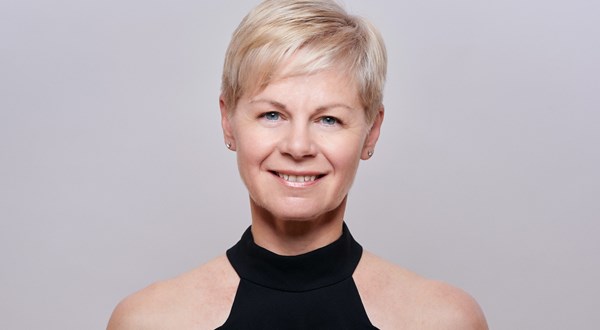
Director's Message
Bach’s Easter Oratorio, born as a birthday cantata for a Duke, re-worked six weeks later for the service on Easter Sunday has lived through many iterations since 1725. It’s exciting to be working with the immense talent and graciousness of Lachlan Skipworth to conjure yet another iteration; one that is framed by contemporary sensibilities and sensitivities and yet still honouring that universal search for redemption.
Winthrop Hall is the perfect venue for this semi-staging of the Oratorio and it is a real treat to work with the students here.
The similarities between the core themes of the story of the resurrection and those that broadly exist in humanity, regardless of creed, are where we have focussed our creative discussions: to redeem and be redeemed, to experience hope, doubt, longing, yearning, to experience the reverie of being in the presence of real beauty, to betray, to deny, to feel love that is pure and all-encompassing and, because it is just that, hurts deeply.
Chris van Tuinen created a great moment when he gave Lachlan the licence to consider the recitatives anew. Suddenly we were looking at a World Premiere of a work that had been performed for the last 298 years.
This semi-staged production, collaborating with Lachlan and lighting designer, Mark Haslam, was never going to be a narration, but an evocation. An evocation of the way the universal themes make us feel, not the events per se. The performers, musicians, lighting, staging and reconsidered recitatives have a task; and that, we hope, is to facilitate a state of repose that allows the audience to reflect, to feel. To that end we are not including any surtitles in these performances, the English text for both the Bach and the Skipworth are available above. Where you see text highlighted in bold, these are the specific words that either Lachlan or I have focussed on within that particular number.
We hope you experience an hour in which the Bach carries you as it always has, and that the Skipworth carries you even further. Wherever you arrive, and however you arrive there, redemption, while the language of religious texts is a quality that also lies in the hands of each and every one of us.
Margrete Helgeby Chaney
Director (ORATORIO)

